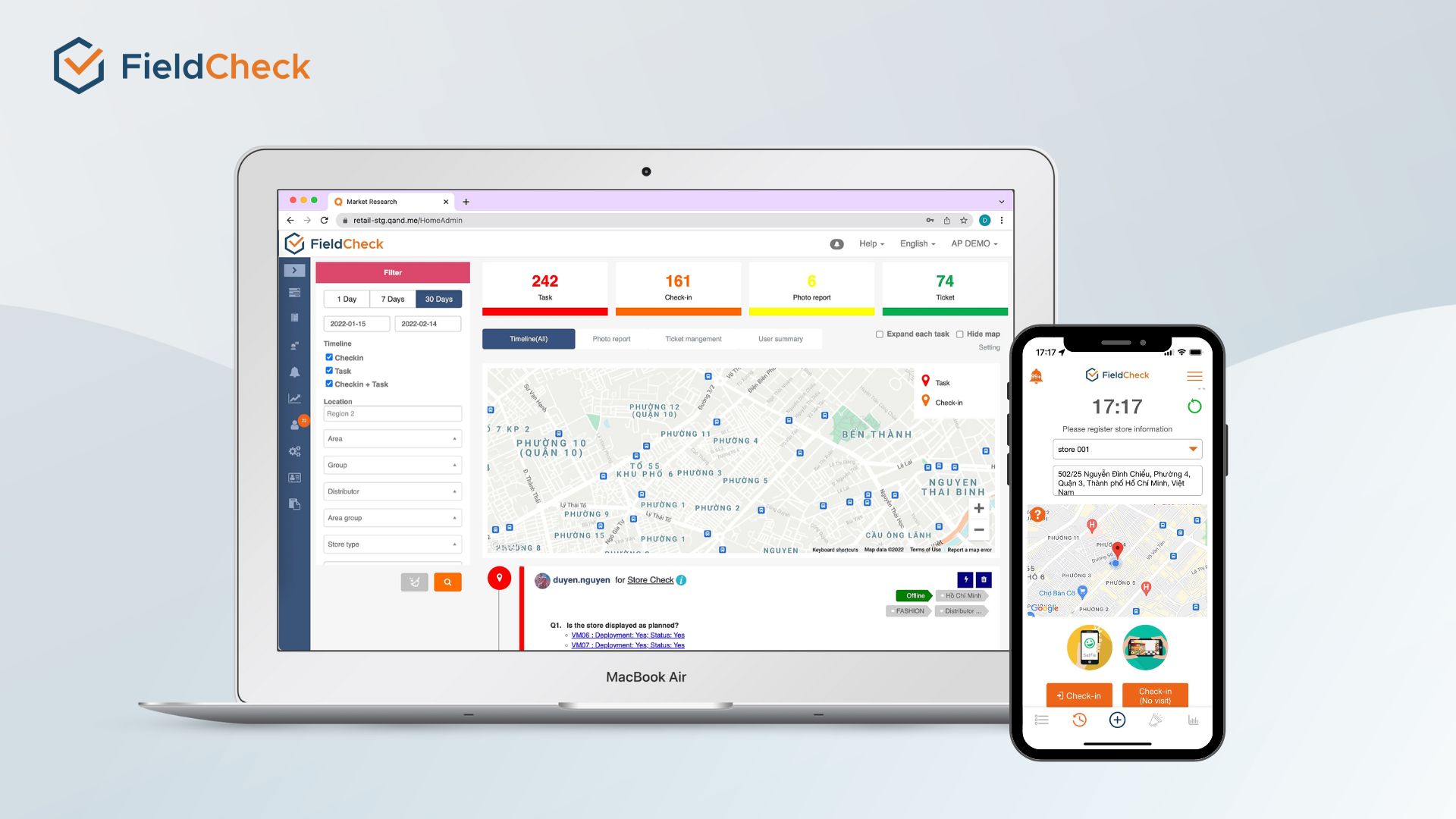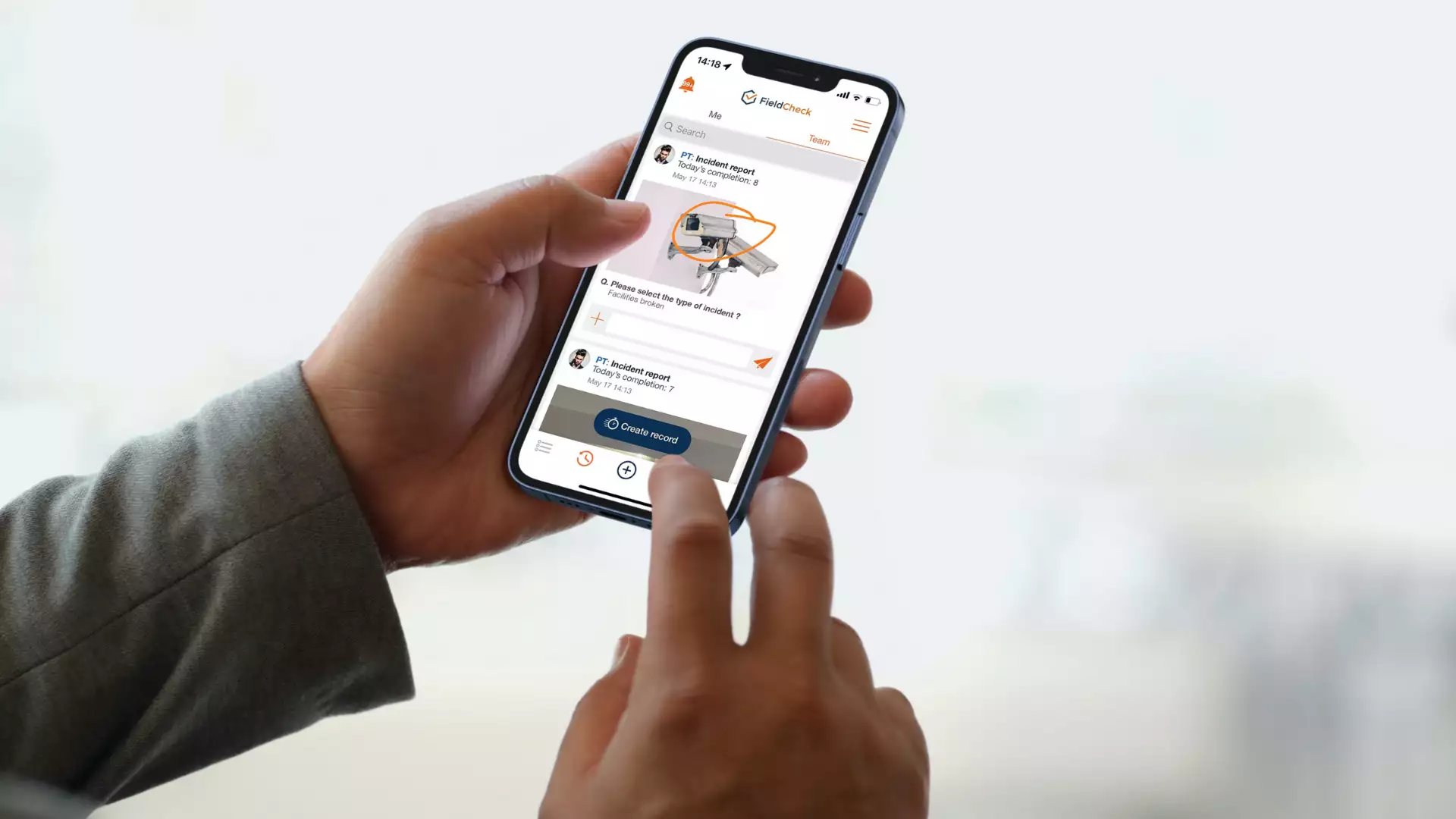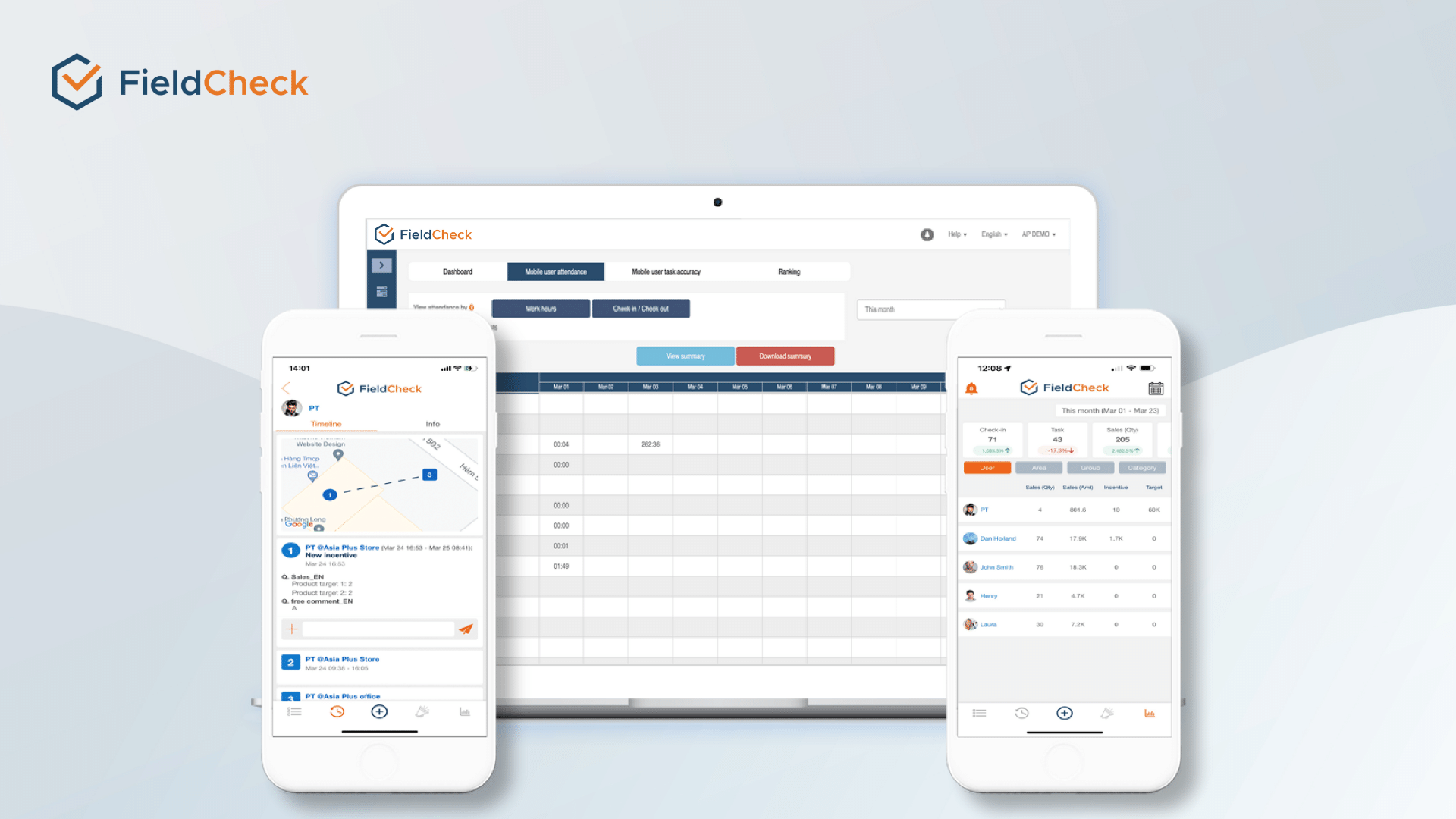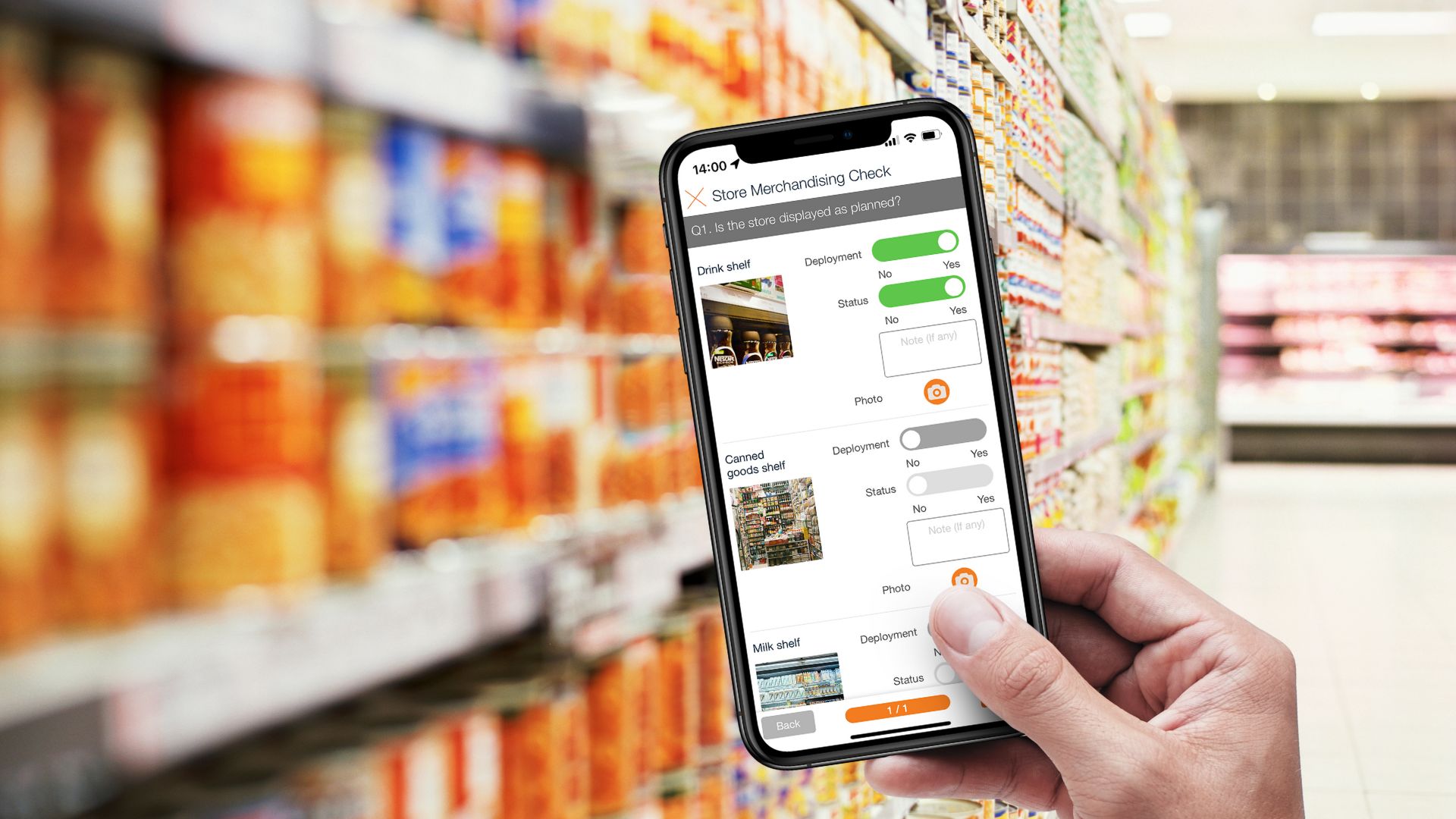How to Manage a Retail Store Effectively: What Every Manager Must Know
Today's retail market is gradually becoming more and more exciting with the participation of many different names. Chain stores gradually sprang up all over the crowded streets.
With the growth in store size, it can show the great attraction of the retail industry today. However, not all businesses are successful on this path.
The question is: How do you run your store as efficiently as possible? How can businesses create a competitive advantage when more and more organizations compete for this market share?

How to manage retail stores in the most optimal way
To be able to provide a complete answer to help you solve the above problem, we have researched and compiled several ways to manage a retail store effectively. Learn more in the following content.
The Ultimate Retail Store Management
Staff Management
People are an important factor in any organization or business. Like the retail industry, managing employees can also affect store operations, purchasing power, and customer loyalty.
So when managing employees, what factors should retail owners pay attention to?
#1. Time and attendance management and work productivity
Strictly managing employees' working time will help managers capture store employees' productivity, spirit, and attitude.
To do this, management needs essential tools to support reporting and monitoring employee performance. Store management software provides an optimal platform to help businesses manage employee attendance easily.

Most businesses today apply technology to track time and attendance
Accordingly, employees will use mobile devices to perform check-in and check-out. Meanwhile, the admin side can also check the information about the employee's activities on the admin system in real-time at any time and anywhere.
#2. Recruitment
Retail industry managers do not need to be too demanding when selecting salespeople. However, it is important to remember the employees' sales experience and working attitude.
Prospective and good salespeople must understand customer psychology and recognize that customers are the ones who bring profits to the store. Therefore, recruiting sales staff should focus on the candidate's sales thinking criteria and sales attitude.
Another point to pay attention to is the need to present job information when recruiting. Accordingly, candidates can better grasp the nature of the job and its requirements before applying. This also avoids wasting time for staff when performing application screening steps.

Recruitment process should focus on candidates' attitudes
#3. Training and establishing a clear career path
Because of the park's nature, salesperson retention rates are quite low compared to other professions. To motivate your retail staff, you can organize training courses to help your employees develop skills and learn the right knowledge for work.
By taking this practical action, the management can boost the employees' morale, make the work progress smoothly, and increase the cohesion between employees and the direction of the retail chain.
#4. Empowering employees
One of the most effective solutions when managing employees is to empower employees. Accordingly, employees at the store can actively perform, arrange work, and evaluate their efficiency.
In addition, management can facilitate employees' access to work-related issues such as money management, inventory, and paperwork.

Empowering employees
If you're wondering how to track your employees, consider retail store management software. This technology solution can help you decentralize and manage your store workforce easily and optimally.
Besides, setting standards, KPIs, or OKRs that employees can flexibly implement will help them maintain consistency and order when working.
From there, retail businesses can improve business efficiency and increase sales while improving employee productivity at chain stores.
Merchandise Management
#1. Source of supply
When running a retail store, inventory management is the core thing any manager needs to pay attention to. Regular stock control is one of the important tasks.
Tasks that management needs to check the source of goods, such:
- Check the place of origin
- Raw material inspection
- Check quality
- Lot number and expiration date

Controlling the source of supply is not an easy job
#2. Inventory control
Inventory management will help store owners avoid problems such as:
- Unnecessary loss of aviation
- The opportunity cost of losing the ability to sell when the store is out of stock
- Optimize inventory management costs thanks to the optimal rotation between incoming and outgoing goods
#3. Expiration Date Management
Knowing the expiration dates of products in the store and inventory will help businesses limit the waste of input costs.
When managing the number of days remaining before the product's expiration date, management can proactively launch appropriate programs to stimulate consumer demand for purchases, such as discounts, buy 1 get 1 free, etc.
Accordingly, the store can minimize the cost of lost goods due to expired goods.

Expiry date management is important when doing retail business
#4. Sales management
In-store sales management will involve some jobs, such as:
- Product display in store
- Manage sales every day
- Make daily sales report
- Statistics and analysis of best-selling products and vice versa
- Manage the sales behavior of employees
Store Quality Management
#1. Device management
After a period of use, machines and equipment in stores will inevitably encounter problems that need to be repaired and maintained.
To be proactive in managing damaged equipment, managers need sales management software to capture any damage at the store.
In addition, employees can also report quickly to related parties about the damage to equipment so that they can promptly take measures to repair it, avoiding affecting the operation of the shop.
It's also important that this action avoids affecting the retail customer's shopping experience.

Device management
#2. Store display
As mentioned in the previous section, the display manager also plays a key role in retail store management.
Beautiful displays can attract attention and create a better shopping experience for consumers regarding store products. From there, they can make the final purchase decision even if that was not their original intention.
According to a Salesforce study, 84% of participants said they prefer brands that can provide a better customer experience than brands that don't.
Some of the points that management may need to pay attention to when managing exhibits include the following:
- How to arrange the shelves
- Showcase products that need attention
- Research on the movement behavior of consumers when visiting the store to be able to come up with layouts to attract attention
- Communicate to the staff so they can best grasp the display layout
- Check that the display implementation by employees at the stores is as planned
- Evaluate the effectiveness of the display
 Visual merchandising management by app
Visual merchandising management by app
If you want to digitize your retail auditing process and store display, contact us
Financial Management
When it comes to financial management, most people will only think of the money management aspect, which is the sales or spending of the store.
However, other equally important factors include assets, raw materials, production supplies, and other problems arising in the process of capital formation or revenue and expenditure.
Managing finances effectively is difficult in any field, particularly retail. Whether you own a small business or a large chain, good financial management will greatly assist you in controlling risk factors.
Based on financial reports, leaders can accurately assess the business situation of the store as well as plan to build products and brands in the most appropriate direction.

Financial management is vital to any business model
#1. Revenue and expense management
Profit and sales at the store are financial indicators that business owners need to master to assess the level of profit and loss in the business process. To calculate the profit the store earns in a month, we have the following formula: Profit = revenue (within 30 days) - Cost (within 30 days).
In which revenue is all the proceeds from the sale of a product or service, and expenses are payments that are either fixed or incurred in the course of doing business. Store operating costs include space rental, staff salaries, repair costs, compensation for imported goods, etc.
You are trading at a loss or no yield if the profit is negative or zero. What you need to do now is change the plan and way of doing business; at the same time, cut unnecessary expenses to reduce losses.
On the contrary, if the profit index results are positive, this is clearly a signal that your business is on the right track and should continue to grow.

Revenue and profit are important measures of a store's health
#2. Debt control
Accounts receivable and payable to customers and suppliers are considered the liabilities of a business. Store owners must ensure adequate storage of relevant documents to ensure smooth payment, debt collection, and, ultimately, good debt control.
If these payments are not controlled and handled quickly, the store's business may have problems when the outstanding debt is too much. In addition, regularly checking and classifying debts also helps managers detect problem debts or newly arising risks early.
#3. Cash flow management
For effective cash flow management, ask yourself the following questions:
- Where will you get the capital (raising capital, finding investors or getting a bank loan)?
- How to use capital effectively?
- How long is the payback period?
- What are the store's total sales in 1 month/quarter/year? Did you achieve the set goal?
- What is the average profit in a year?
- Is there a big difference in monthly expenses between stores?

Cash flow is the lifeblood of a business
Customer Management
Customers are an extremely important factor in determining the success of a retail business. Without customers, there would be no revenue, and the company would be meaningless because they are the main source of your store's income.
Therefore, customer management is very meaningful for a business store, but at the same time, it is also a big challenge. If your store provides products and services of good and stable quality, customers will appreciate your business and be willing to return to it.
However, customer care is another factor in keeping customers happy when shopping at the store. When satisfied with the service and attitude of the staff, the rate of visiting old customers and attracting new customers is extremely high.
Also, don't underestimate the importance of after-sales support. Customers will remember and appreciate your service if you do this.
Applying Technology To Improve Management Efficiency
Traditional management methods
Many businesses, particularly small businesses, currently use Excel and Zalo software to manage their operations. This tool is very useful in store management with simple and clear spreadsheets. Users can also view charts and use formula cells to represent and calculate data accurately.
However, Excel has some disadvantages, such as requiring users to have general knowledge of Excel to use it and be proficient in using Excel's formula system to be reasonably applicable to their store. As for Zalo, it is easy to make mistakes and waste time aggregating data, and it isn't easy to manage the store's orders effectively.

Traditional methods demand a significant amount of time and effort from managers
Applying technology to manage a retail store
Many businesses have turned to DMS solutions to manage finances, control goods, and drive sales staff effectively.
DMS (Distributors Management System) is a management software between distributors and retailers or between companies and manufacturers, solving the challenges of managing the distribution of goods in the supply chain from factory to consumer.
In addition, one way to manage a retail store is to use a store quality management system. Accordingly, stores can closely monitor any activity related to inventory levels, preventing unexpected losses due to lax inventory management.

Managing a retail store with technology is a must-have trend in the 4.0 era
FieldCheck software is a solution that helps retailers easily create tasks and benchmarks for each store with mobile digital transformation checklists. This tool provides a list of questions corresponding to the activities included in the store management process that the store owner sets up on the software.
If you want to digitize your retail chain management, contact us




